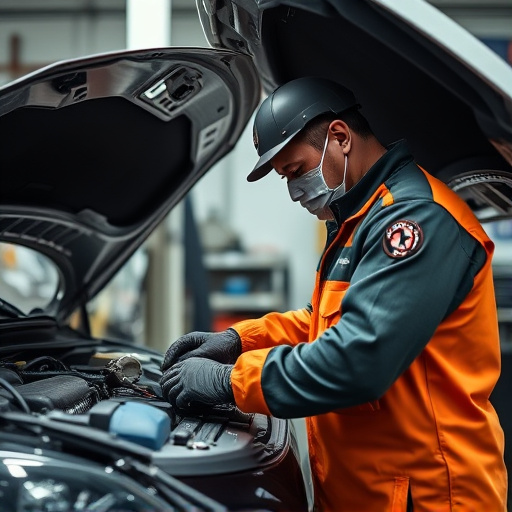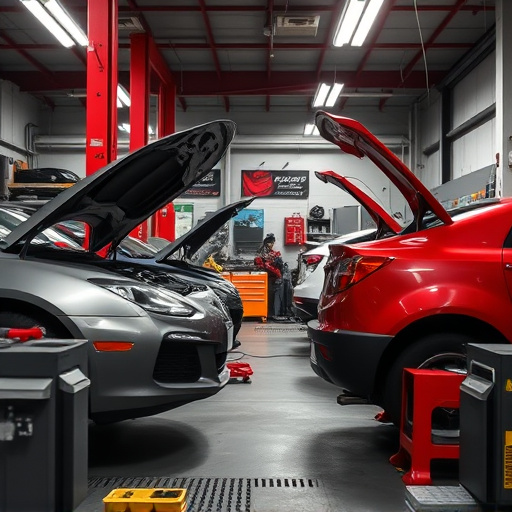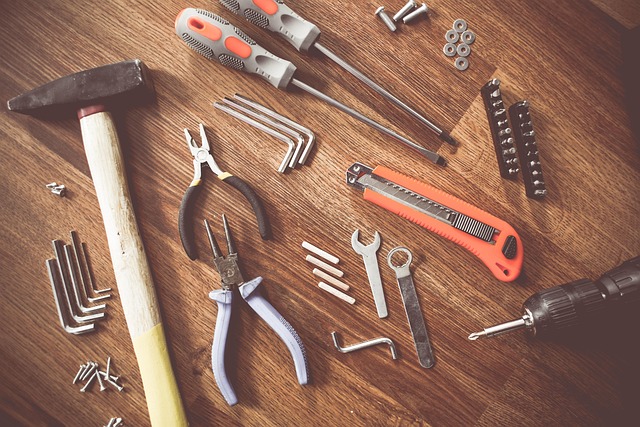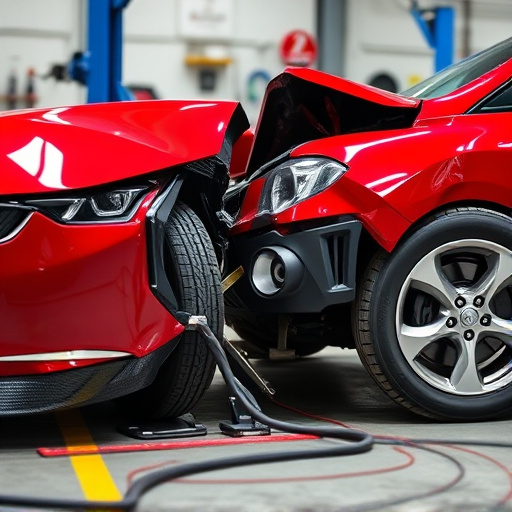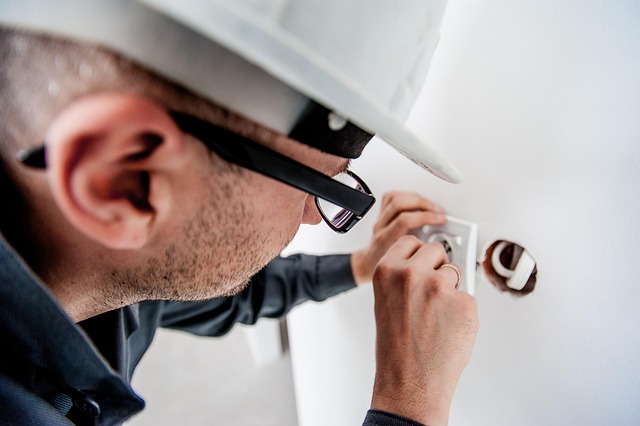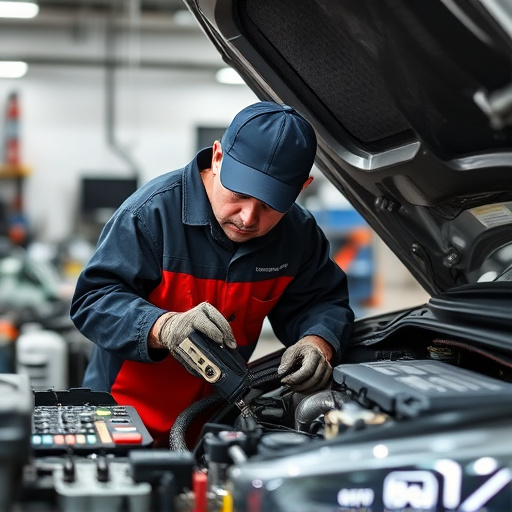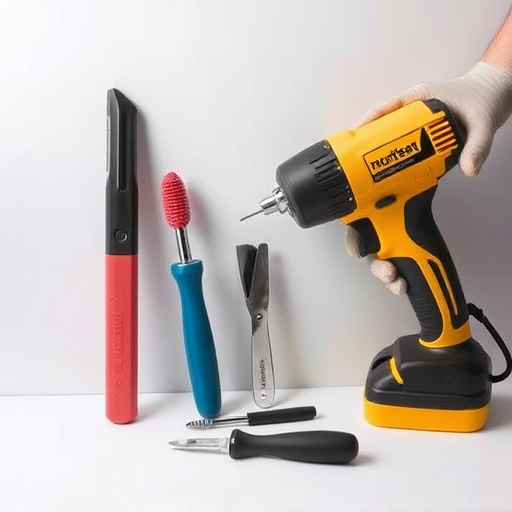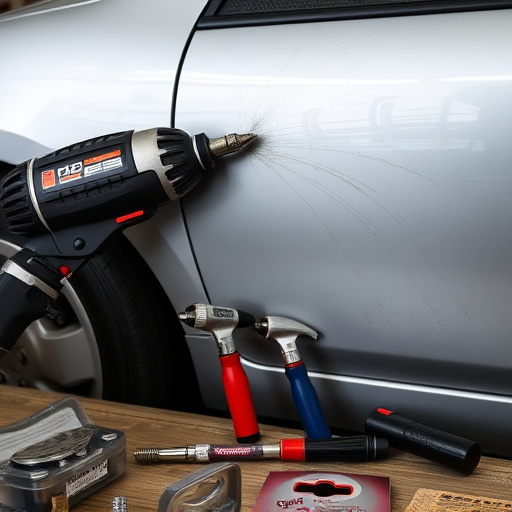Obtaining a frame repair certification is vital for automotive professionals, ensuring they meet high standards and possess skills for complex repairs focused on structural integrity. Requirements vary by region, encompassing knowledge of frame dynamics, safety standards, and advanced techniques. Employers seek technicians with technical expertise, problem-solving abilities, and understanding of car bodywork services, including painting. Certified individuals enjoy enhanced career prospects, job security, salaries, and professional growth within auto body shops, demonstrating a commitment to excellence in vehicle maintenance.
In today’s competitive automotive industry, employers are seeking qualified professionals with frame repair certification. Understanding the specific requirements and expectations set by this certification is crucial for aspiring technicians. This article delves into the essential skills and competencies sought after by employers, exploring how certification opens doors to diverse career opportunities. By examining these factors, individuals can navigate their path towards successful careers in frame repair.
- Understanding Frame Repair Certification Requirements
- Skills and Competencies Employers Seek in Certified Technicians
- The Impact of Certification on Career Opportunities and Employee Expectations
Understanding Frame Repair Certification Requirements

Obtaining a frame repair certification is a significant step for professionals aiming to excel in the automotive industry, particularly within collision repair shops or offering car repair services. This certification sets a standard and ensures that technicians possess the necessary skills and knowledge to handle complex vehicle repairs, especially those involving structural integrity. The requirements vary across regions but generally encompass a comprehensive understanding of frame dynamics, safety standards, and advanced repair techniques.
Individuals seeking this certification can expect to learn about different types of frames, from traditional unibody designs to more modern constructions. They will master the art of alignment, straightening, and rebuilding vehicle frames, ensuring precision and accuracy in their work. Moreover, understanding the importance of frame repair in maintaining vehicle safety and performance is key, as it directly impacts the overall quality of car repair services provided by a shop or individual technician.
Skills and Competencies Employers Seek in Certified Technicians

Employers seeking skilled technicians for frame repair certification are looking for individuals with a unique blend of technical expertise and problem-solving abilities. Certified technicians should possess an in-depth understanding of car bodywork services, including the intricate processes involved in both minor and major repairs. Knowledge of auto body painting techniques is also highly valued, as it ensures that not only the structure but also the aesthetic appeal of the vehicle is restored to its original condition.
Beyond technical proficiency, employers expect certified frame repair specialists to demonstrate excellent communication skills, attention to detail, and a safety-conscious mindset. They should be adept at interpreting complex repair manuals and diagnostic tools, translating them into effective solutions for collision repair shop operations. The ability to work independently as well as collaboratively in a fast-paced environment is crucial, ensuring that repairs are not only timely but also of the highest quality standards.
The Impact of Certification on Career Opportunities and Employee Expectations

Holding a frame repair certification can significantly enhance career prospects within the automotive industry. Employers across auto body shops and service centers increasingly value this specialized skill set due to its crucial role in ensuring vehicle safety and structural integrity. Certified professionals demonstrate a commitment to excellence, enabling them to take on more complex tasks and contribute to higher-quality auto maintenance.
This certification not only opens doors to diverse career opportunities in both traditional vehicle body repair and emerging sectors but also sets expectations among employers. It signals an individual’s proficiency in utilizing advanced techniques and tools for frame alignment, damage assessment, and restoration, thereby fostering trust and confidence in their abilities. This, in turn, translates into better job security, competitive salaries, and opportunities for professional growth within the auto body shop environment.
Employers seeking skilled technicians with a deep understanding of frame repair processes are increasingly turning to certified professionals. This article has highlighted the key aspects of frame repair certification, from meeting stringent requirements to possessing specialized skills and competencies. By obtaining this certification, individuals not only enhance their employability but also open doors to diverse career opportunities within the automotive industry. The benefits extend to both employers and employees, fostering a culture of quality and professionalism in frame repair services.
